Kirby Kuznia
Benchmarking Generalization via In-Context Instructions on 1,600+ Language Tasks
Apr 16, 2022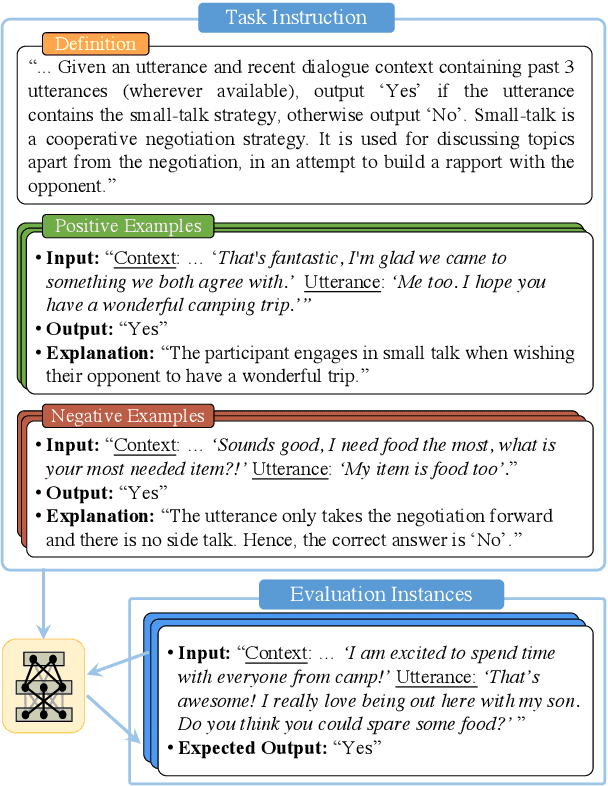

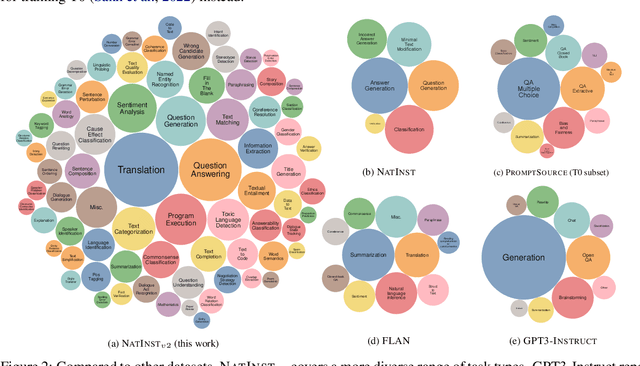
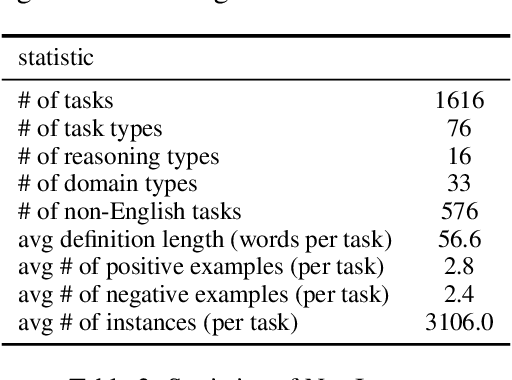
Abstract:How can we measure the generalization of models to a variety of unseen tasks when provided with their language instructions? To facilitate progress in this goal, we introduce Natural-Instructions v2, a collection of 1,600+ diverse language tasks and their expert written instructions. More importantly, the benchmark covers 70+ distinct task types, such as tagging, in-filling, and rewriting. This benchmark is collected with contributions of NLP practitioners in the community and through an iterative peer review process to ensure their quality. This benchmark enables large-scale evaluation of cross-task generalization of the models -- training on a subset of tasks and evaluating on the remaining unseen ones. For instance, we are able to rigorously quantify generalization as a function of various scaling parameters, such as the number of observed tasks, the number of instances, and model sizes. As a by-product of these experiments. we introduce Tk-Instruct, an encoder-decoder Transformer that is trained to follow a variety of in-context instructions (plain language task definitions or k-shot examples) which outperforms existing larger models on our benchmark. We hope this benchmark facilitates future progress toward more general-purpose language understanding models.
Less is More: Summary of Long Instructions is Better for Program Synthesis
Mar 16, 2022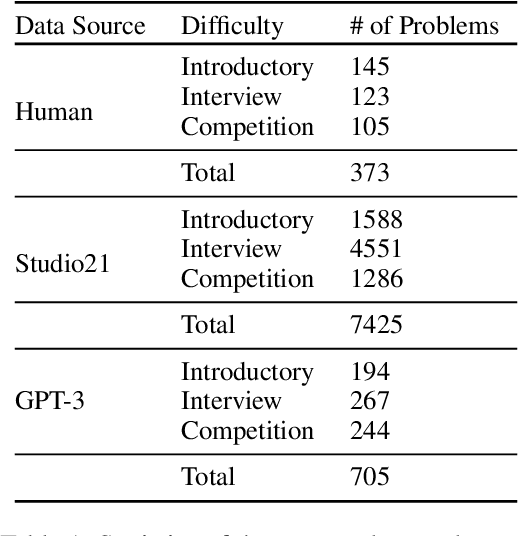
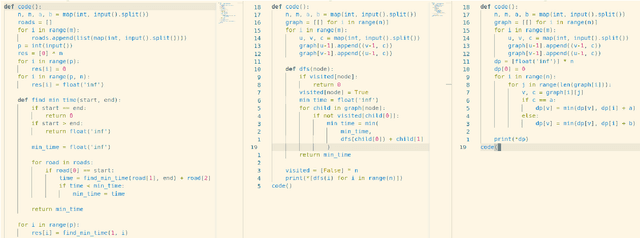


Abstract:Despite the success of large pre-trained language models (LMs) such as Codex, they show below-par performance on the larger and more complicated programming related questions. We show that LMs benefit from the summarized version of complicated questions. Our findings show that superfluous information often present in problem description such as human characters, background stories, names (which are included to help humans in understanding a task) does not help models in understanding a task. To this extent, we create a meta-dataset from the frequently used APPS dataset for the program synthesis task. Our meta-dataset consists of human and synthesized summary of the long and complicated programming questions. Experimental results on Codex show that our proposed approach outperforms baseline by 8.13% on an average in terms of strict accuracy. Our analysis shows that summary significantly improve performance for introductory (9.86%) and interview (11.48%) related programming questions. However, it shows improvement by a small margin (~2%) for competitive programming questions, implying the scope for future research direction.
 Add to Chrome
Add to Chrome Add to Firefox
Add to Firefox Add to Edge
Add to Edge